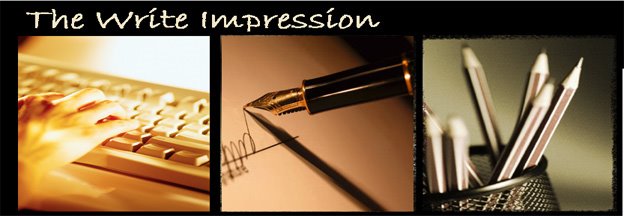I used to think so. I’m somewhat of a book purist (some would say snob), and I tend to prefer my books the traditional way, in print. No fancy eReaders for me! Similarly, I used to feel that audio books were somehow not real books. Maybe it’s a holdover from my student days, but I still consider reading “work,” even though it’s my favorite hobby—a labor of love, if you will. The physical act of holding a book and running your eyes down the page equals reading; listening to an audio book while cooking, driving, or laying on the couch equals entertainment, like watching TV. Right?
A couple of years ago, a good friend of mine helped to change my outlook on audio books. She listens to them quite frequently, especially while commuting, and gave me a few to try out. I can’t say that I was an immediate convert. There have been a few books I simply could not listen to for one reason or another. For example, I don’t enjoy books read by a large cast, as if the book is a play rather than a novel. Sometimes a reader’s voice, accent, or phrasing grates on my nerves so much that I have to switch to the print version.
Books read by the author tend to be the best. And sometimes you will get lucky with an amazing reader, such as Ron Perlman, who read part one of Guillermo del Toro and Chuck Hogan’s The Strain. Aside from great performances, there are some useful benefits to audio books:
- It gives you something to do other than listening to music or talk radio while commuting or taking long trips. And you feel so productive when you’re listening to a book!
- The addition of audio books can help double the amount you read. You can be reading one book and listening to another at the same time!
- At least for me, listening to a book in the car keeps me more alert and makes me a better driver. There is no time to daydream, or you might miss a crucial point.
- You are more likely to listen to something that you might find too difficult/tiring to read. I, for example, find it very difficult to read non-fiction books. Even if I find the topic interesting, I have trouble concentrating on it for an extended period of time if I’m reading. I don’t mind newspaper or magazine articles, but books exhaust me. However, I can listen to non-fiction books all day long! This could also work for literature classics (which you’ve had laying on your nightstand for two years but just can’t seem to read past page 20), such as Anna Karenina or A Tale of Two Cities.
“Aha!” you might say, “But this is proof that listening to audio books is cheating. It’s like using a shortcut.” And to that I would say, “Absolutely not!” That would be like saying that reading a textbook is superior to listening to a teacher’s lecture. We all know that a great teacher can make a subject come alive. Here’s how I see it: at its most basic level, reading is absorbing content from an outside source. Whether you absorb it visually or auditorily is irrelevant. Additionally, oral language precedes written language, and oral storytelling has been a valuable cultural cornerstone of many civilizations. In other words, there’s nothing wrong with listening to a story now and then.
What I do wonder about with regard to audio books is whether authors should consider modifying their writing style to cater to audio audiences. Sometimes in a book you might come across a long dialogue in which the speakers are not identified. If you are reading this dialogue, you might get confused, but you could always go back and count from the beginning who is saying which line. If you are listening to this same dialogue in an audio book, it might be very difficult to follow if the speakers are not identified in some way. Another example involves visual cues in text, such as using italics to indicate thoughts or using page breaks to indicate time or perspective shifts. These nuances would be lost on a listener and could cause a misinterpretation of the content. But is it the responsibility of the writer, the purveyor of the written word, to be concerned with how his or her finished product is used—in print, electronic, or audio format? Would format consideration put constraints on the writer’s creativity? I have a feeling that writers will have to address this issue in the near future.
Thursday, September 16, 2010
Subscribe to:
Post Comments (Atom)




4 comments:
Some of those particular nuances, like using italics to indicate thoughts, should probably be handled by the reader of the audio book, rather than the writer worrying about that stuff. If a book is read right, then the thoughts can be portrayed by a different tone of voice, etc. But there are still some things that cannot be told through tone of voice (shifts in time, long passages of dialogue). Do we, then, allow the reader of the audio book to add their own interpretation?
For example, would it be wrong for the reader to add in a "John said" when the dialogue becomes too long? As a writer, I'm not sure how I feel about this. I don't think I would mind, but sometimes attributions are left out for different reasons. Maybe the writer wants the reader to question the speaker.
All things considered, though, I know that when I'm writing, I don't want to have to think about what it's going to sound like in an audio book and try to cater to that, mostly because writing is hard enough as it is. And although I don't consider listening to audio books as cheating, I would much rather read words rather than listen to them.
Yana,
Great post! I wouldn’t call listening to audio books “cheating,” but I definitely think the task is entirely separate from reading. Yes, I would place it into the entertainment category right beside listening to music and/or watching TV.
I too need to feel a book in my hands. I like to set my own pace and choose my own inflection in my head. In my head, I can hear the voice of the characters, and not the voice of someone else reading their quotes to me. The characters, then, become more real and more personal.
The “work” you feel that comes with reading is something I feel as well. If left to “listen” to a book, I often find that I let my mind wander to other things, and the information tends to become background noise.
I like your analogy that compares listening to an audio book as similar to listening to a lecture. Nice observation. Yes, some people can certainly make a subject “come alive.”
I hope that authors of books will never considering “modifying their writing styles” to appeal to an audio audience. This would break my heart as much as someone who thinks writing to a blog does not need to consider grammar, because she is “writing as she would speak.”
Keep the posts coming!
To comment on writers writing differently in considering their audio-audiences, I would say that some are now doing it; though not necessarily full conscious of it.
There are some like Stephen King who does consider his audio-audiences. He often picks his narrators; he's talked at length about audiobooks, and he even had a character as an audiobook narrator (Rose Madder--it's actually pretty meta-audio-fictional moment too!).
Okay, So I am late coming to this blog, and I really shouldn't be on here now, but I needed a break from studying! But I am happy I checked this blog because I am delighted by this entry. Yay! I got a "shout out," and I succeeded in converting you once you had enough good experiences with audio. I think you put perfectly my feelings about "consuming" a story either aurally or visually. Thanks for spreading the word! :)
Post a Comment